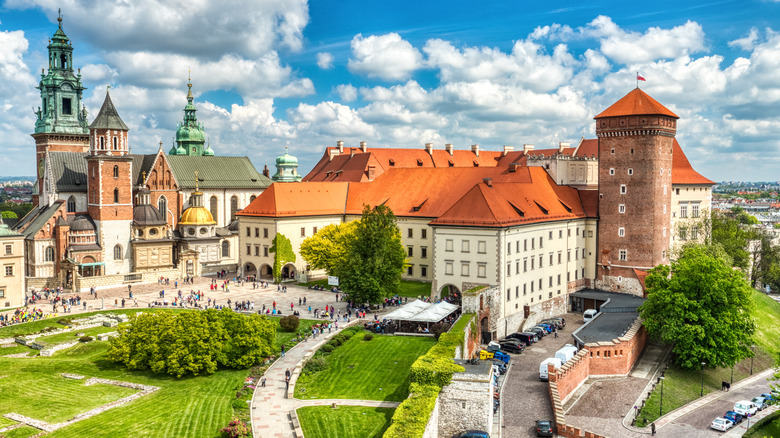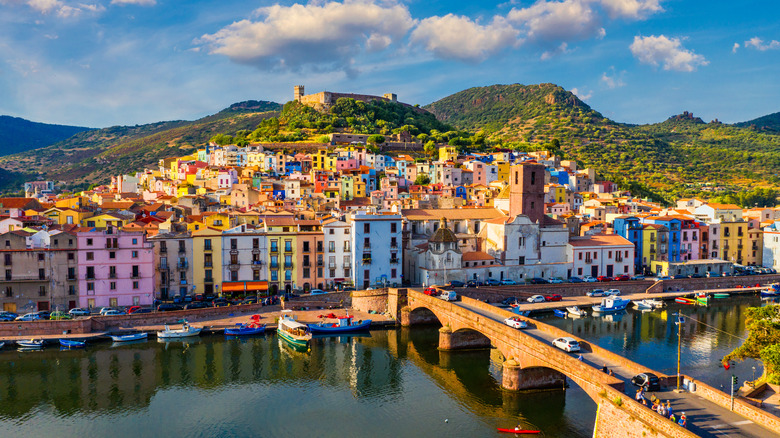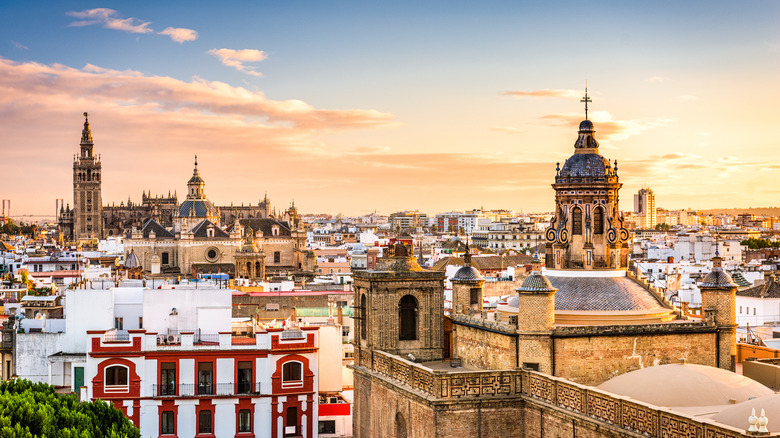5 Underrated European Cities Great For Expat Living
After dreaming of work-life balance and cafés long enough, you have decided to do it. Whether it be a new job or retirement destination, your visa has been approved. Congrats — you're moving to Europe! What an exciting, disorienting, and surprising journey that awaits. We all grew up with postcards from the colosseum and Eiffel Tower, but there is so much more to the Old World than its capital cities. So where to go?
Local life varies far and wide, with factors like employment, real estate, cuisine, assimilation, and language all presenting their relative degrees of feasibility and difficulty. But today, we want to talk about some places that are a bit more off the beaten path than the world's London and Paris. Not to mention that Europe has a noticeably lower cost of living compared to many parts of the U.S., per Investopedia. So today, we are diving into five underrated European cities you should consider for your next chapter as an American expat!
Rye, England
If your hobbies include curling up to a classic novel over a hot coffee or strolling through a charming village, look no further than Rye, England. Full of cobble-stoned streets and picturesque Victorian architecture, Rye is an Anglophile's dream come true. Uniquely positioned in southern England atop a hill and minutes from the ocean, you will find medieval eateries, castles, marshes, and a true English experience in this ancient town, as noted by Britain Express. With architecture dating back to as old as the 13th century, you will be dazzled by the historical authenticity you discover at every turn. Fun fact: The famous Mermaid Street is considered one of the most haunted places in England.
Regarding affordability, Right Move notes that the average home price in Rye was just under £400,000, which is in line with the median home price in the U.S. housing market, via Bankrate. It is only an hour from London by train, but the town packs a surprising punch and features all the essential stores and services you could need without resorting to a major city, states Bournes Moves. Rye is also family-friendly, with public education, local soccer, a recreation space, and two parks among the additional amenities of the area. As service trades heavily influence the local economy, this might be a destination better suited for someone with a remote job or based out of London.
Kraków, Poland
The former capital of Poland until 1596, Kraków is the second largest city in Poland, with just under 800,000 people, according to Enjoy Travel. Despite its size, Kraków is also an exceptional display of Polish culture, with the largest medieval market in Europe, featuring dining, leisure, and historical exhibitions. The city was also the original UNESCO World Heritage Site, initially bestowed this title in 1978. With a reputation as a fun college town, Kraków features lively celebrations every weekend. Nature variety is also a pleasant surprise here, with dozens of parks and stunning mountains for hiking outside the city center.
It is not the most economically robust option, as SalaryExpert notes that the average local salary in Poland is only around $20,000. Teleport points out that a sizable apartment can be rented for about $800 per month. Even with a local job, living here is somewhat affordable. But if you have a remote job or are living off retirement savings, this could be an incredibly affordable option for an expat. A local job might also be an option for someone looking to do their version of an immersion program. English is spoken moderately in Kraków, but learning the language will certainly benefit your experience.
Sardinia, Italy
Not that Italy is ever a hard sell, but Sardinia is beautiful! From beaches and mountains to stunning greenery, it is a winner of geographic riches. If you are looking for serenity, peace, and incredible food, it doesn't really get much better than this. And the people are living proof of this idyllic living. Expatra notes that Sardinia is a blue zone, with one of the highest rates in the world of residents living over the age of 100. Aside from the remarkable quality of life, the weather is spectacular. The island is famously known for having long summers, from May through October, per Sardinian Places.
However, this is an island less accommodating to younger expats. For one, the pace of life moves very slowly and quietly. Secondly, there is very limited full-time, let alone competitive, employment opportunity here. So while its pace and sleepy economy might be somewhat deterring, the cost of living is better than one would expect. Gate Away notes that a 4-bedroom villa, for example, can go for as low as around $400,000. And a more modest two-bedroom apartment can go for as little as $200,000. Considering the climate, fresh produce, and natural beauty of the region, these are affordable real estate prices. While English is spoken moderately, it is recommended to learn some Italian when assimilating to have some introductory phrases.
Sevilla, Spain
Sevilla is the fourth largest city in Spain, and is full of cultural authenticity, according to World Population Review. This local sensibility is matched with a small but welcoming expat community that makes moving here that much easier of an adjustment. Upon arrival, expats can enjoy a slower pace of life, great weather, and proximity to the beach and other cities in southern Spain, with regular siestas and dinners going well into the late evening. Traveling In Spain notes that Sevilla has several fascinating elements, including a remarkable solar energy hub and where the flamenco dance was created.
Sevilla is a wonderful combination of the historical and the new. And while Spain does not generally have the most robust economy, English Jobs Spain notes that there are emerging opportunities for English speakers in Sevilla, with roles in sales, software engineering, and project management. From an assimilation standpoint, however, English is not commonly spoken in Sevilla, and learning or knowing Spanish would be essential to truly immerse in local communities. Language aside, many expats pursue Spain, regardless, because of its relatively easy residency visa process. Immigration Spain notes that it takes roughly three to six months for the approval or response to come back.
Porto, Portugal
There are many reasons to love Portugal, and near the top of that list is Porto. Porto is the place to be in northern Portugal, sitting alongside the Douro River as one of the most vibrant up-and-coming cities in Europe. With personable English-speaking locals, affordable living – Idealista notes that a two-bedroom apartment can be purchased for under $300,000 — and a fascinating mixture of Romanesque and Gothic architecture, Porto is a fantastic option for expats that offers a much easier assimilation process than some other places, via Expatra. Not to mention, Porto is only 30 minutes from Douro Valley, one of the premier wine countries in the world. If you have ever heard of port wine, you would be correct if you guessed it is named after the city of Porto, per Vino Vest.
Porto has modern infrastructure with a historical backdrop, as Live And Invest Overseas notes that Portugal has the 12th best healthcare in the world. With lots of walkability and bike routes, Porto offers a wonderful outdoor lifestyle complemented by world-class dining and surprisingly fun nightlife. While the bureaucracy is a bit frustrating and can be stubborn when dealing with a visa, the application process is relatively straightforward, coming with a similar timeline as Spain.





